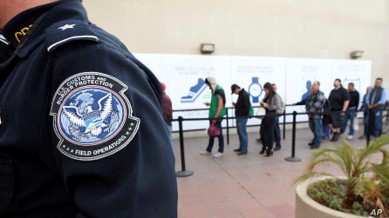President Trump issued a Presidential Proclamation on April 22, 2020 entitled “Suspending Entry of Immigrants Who Present Risk to the U.S. Labor Market During the Economic Recovery Following the COVID-19 Outbreak.” It becomes effective on Thursday, April 23, 2020 at 11:59 PM (ET). This Proclamation remains effective for 60 days. Within 50 days from the effective date, the Secretary of DHS shall, in consultation with the Secretaries of State and Labor, recommend whether the president should continue or modify the Proclamation.
Notably, nonimmigrant visa holders are not affected by the Proclamation. However, the Proclamation requires that within 30 days of the effective date, the Secretaries of Labor and DHS, in consultation with the Secretary of State, shall review non-immigrant programs and recommend to the president other appropriate measures to stimulate the U.S. economy and ensure “the prioritization, hiring and employment” of U.S. workers.
This Proclamation suspends the entry of any individual seeking to enter the U.S. as an immigrant who:
- Is outside the United States on the effective date of the Proclamation;
- Does not have a valid immigrant visa on the effective date; and
- Does not have a valid official travel document (such as a transportation letter, boarding foil, or advance parole document) on the effective date, or issued on any date thereafter that permits travel to the United States to seek entry or admission.
The Proclamation has numerous broad exemptions. This means the actual effects on the labor market will be more narrowly applicable than the administration’s initial intentions stated earlier in the week. As stated, the Proclamation does NOT apply to:
- Lawful permanent residents (a.k.a. green card holders)
- Immigrants and their families coming to work as a as a physician, nurse, or other healthcare professional; to perform medical research; or other research intended to combat the spread of COVID-19; or to perform work essential to combating, recovering from, or otherwise alleviating the effects of the COVID-19 outbreak, (as determined by the Secretaries of State and Department of Homeland Security (DHS), or their respective designees)
- Immigrant investors under the EB-5 visa program
- Individuals who are spouses of U.S. citizens
- Individuals who are children of U.S. citizens under the age of 21 (prospective adoptees seeking to enter on an IR-4 or IH-4 visa)
- Individuals who would further important U.S. law enforcement objectives (as determined by the Secretaries of DHS and State based on the recommendation of the Attorney General (AG), or their respective designees)
- Members of the U.S. Armed Forces and their spouses and children
- Individuals and their spouses or children eligible for Special Immigrant Visas as an Afghan or Iraqi translator/interpreter or U.S. Government Employee (SI or SQ classification)
- Individuals whose entry would be in the national interest (as determined by the Secretaries of State and DHS, or their respective designees).
- Asylum seekers (does not limit the ability of individuals to apply for asylum, refugee status, withholding of removal or protection under the Convention Against Torture, Prioritized Removal).
Special thanks to the Penn State Law School Center for Immigrants’ Rights Clinic, which published the attached summary of the Proclamation, and the University of Pittsburgh’s Immigration Clinic for its translation of that document into Arabic.

